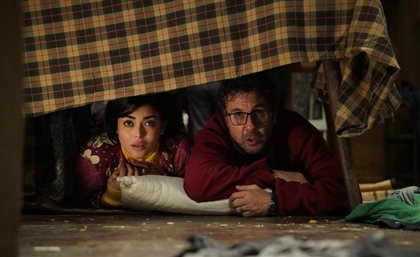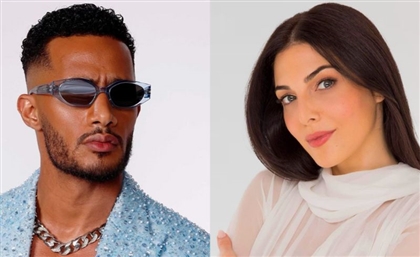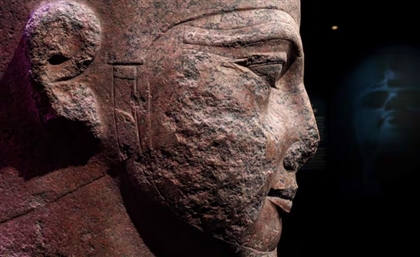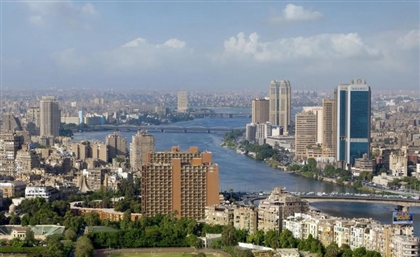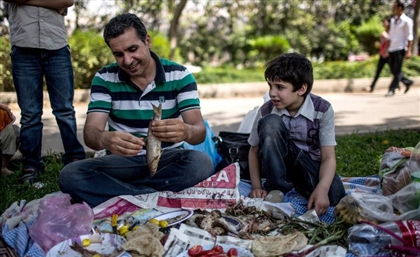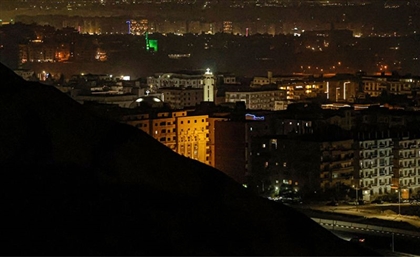Eshtebak (Clash) Filmmakers: The Picture May Be Pulled Out of Theatres
In a time of political polarisation and social divide, Eshtebak attempts to jolt you back into sanity by appealing to your humanity, which naturally clashes not only with the country's censorship bureau, but also with the zeitgeist of our time: the politics of fear.
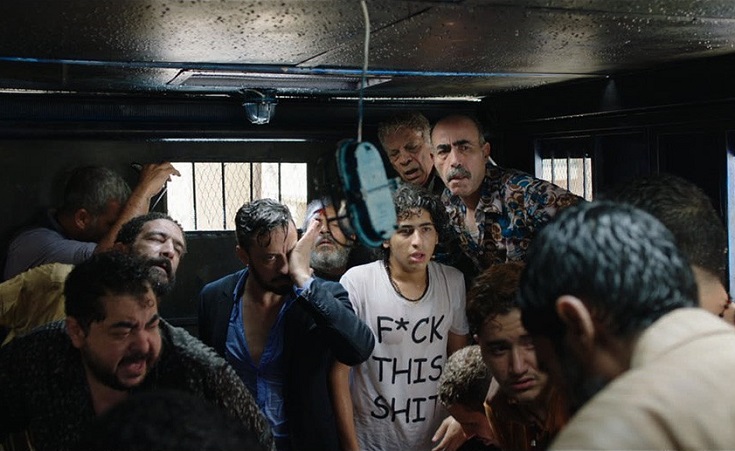
In film, as in life, books are judged by their covers. Hair, makeup, attire, idiosyncrasies, general aesthetic, speech, diction, and overall appearance can make or break a character. As crude as it may sound, these optical attributes have proven effective in conveying what words often can’t; not only do they connect audiences to fictional characters, they satisfy our human compulsion to ‘pin things down’ thus fulfilling their raisons d’être. In them we find the comfort that comes from presumptive knowledge, half-truths, and verisimilitude. And why shouldn’t we? Can anyone honestly presume to possess the key with which to unlock the mysteries of another human beings’ innermost self?
True to his profession, director Mohamed Diab had me pegged as a CairoScene bent nass – Egyptian colloquialism for white bread, basically – the first time we met at the long overdue Cairo premiere of his groundbreaking and critically lauded drama Eshtebak (Clash), and with that comes the presumed understanding of who I am and my place in the county’s dense political tapestry. But if I was one of the characters trapped in the back of that illustrious eight meter squared police van the film was entirely shot in with people so different from myself, people from all walks of life, from all disciplines, all creeds and all political ideologies, what difference does it make what I believe? “This police van represents Egypt, every person inside it comes from a different background and a different ideology,” actor Ashraf Hamdi said of the project. And just like Egypt, this police van is the vessel that carries Eshtebak’s motley characters into a future only they can decide. But the word ‘future’ has been tossed around a lot lately by those who seek to indoctrinate us into their perceptions of our present reality at any price, “Eshtebak is being painted as a political film, but it’s not, we tried not to politicise the film and rather focus on people,” Hamdi added. A little over an hour and a half long, Mohamed Diab’s cinematic gem Eshtebak feels like a lifetime spent confined in an 8 square meter prison cell made entirely of unatoned wrongs, century-old feuds and heavy crippling indignation that eventually erupt in a cataclysmic upheaval. The bravura mise en scène and cinematography stimulate your humanity as you cringe and wince with every camera movement. The moving lines, accompanied by masterful portrayals, leave you regretting every moment you spent self-righteously unsympathetic as you hid behind your ‘values’.
But unlike most people, actors – or at least the good ones – are born with a tremendous capacity for compassion that allows them to morph into someone else in a matter of months, or in some cases weeks. “We all have different opinions, so for some of us to play characters that are so opposite to our own views was very difficult, like obviously, I don’t support the Muslim Brotherhood whatsoever, so I had to really work on the character,” actress May El Ghety says of her time as ultraconservative Muslim Aisha in Eshtebak. “I have this school friend, who is very religious and comes from a really religious family who supports the Muslim Brotherhood, and she had characteristics that I felt I had to study really well in order to really get the part right.”
To some, however, full on immersion was unavoidable. “The matter of how long we could survive in the back of a police van started to affect us psychologically, we became convinced that it was really one and that we were entrapped in it. It made the performance feel real because you can only see the world through barred windows. Sometimes we weren’t allowed to get out - they’d really lock us in and we would be stuck in there with the DOP,” actor Amr El Qady says. “Add that to the fact that Diab is very meticulous so we’d end up with 16 takes of the same scene. All this pressure that you have to repress because you can’t take it out on other people builds up in you and there is no way out of the van. You are crammed with other people and coexistence becomes very tiresome.”
 The cast of Eshtebak posing for a group selfie at Festival de Cannes
The cast of Eshtebak posing for a group selfie at Festival de Cannes
From the back of a police van, Eshtebak chronicles the turmoil that followed the ouster of former president Mohamed Morsi. This elaborate lie tells a different truth, one that has eluded us amid the social divide and the political polarization, one that despite being ubiquitous can be equivocal when measured against one’s deep-seated ideologies. Somewhere along the line, our common denominator as human beings who share this homeland became at odds with individual political allegiances and if history has taught us anything it is that the latter always overrides the former. Tolerance has become a luxury few can afford and coexistence a burden and the sane minority overshadowed by the fanatically vocal majority, so naturally, Eshtebak’s bipartisan message was lost on many, causing quite the kerfuffle from those who wouldn’t even give the picture the hour and a half it takes to watch it. “It took us a year and a half to write the film and we ran it by thousands of people from across the political spectrum to make sure it was objective. […] People who have actually seen the film will tell you it humanizes everyone and is apolitical,” Mohamed Diab asserts.
Tolerance has become a luxury few can afford and coexistence a burden and the sane minority overshadowed by the fanatically vocal majority, so naturally, Eshtebak’s bipartisan message was lost on many, causing quite the kerfuffle from those who wouldn’t even give the picture the hour and a half it takes to watch it. “It took us a year and a half to write the film and we ran it by thousands of people from across the political spectrum to make sure it was objective. […] People who have actually seen the film will tell you it humanizes everyone and is apolitical,” Mohamed Diab asserts.
But in our insanity, we are truly unmatched. Eshtebak opened to rave reviews at Festival de Cannes’ Un Certain Regard and has been shown in 20 countries across North and South America and Europe before it made it to Egyptian screens. “If we had put our own politics in the film, it wouldn’t have been as universal; when we stripped the characters of their politics and focused on their humanity instead, audiences all over the world could identify with them,” Khaled Diab who co-wrote the film with Mohamed Diab explains.
This ‘hysteria’, as Diab describes it, has loomed over Eshtebak even before its release. After the screenplay had been cleared for production, “there was an orchestrated media campaign by people who are trying to ingratiate themselves to the regime, and were trying to deliver a preemptive blow to the film even before they have seen it. […] They painted the fact that German and French investors financed the film as collaboration and ‘foreign funding’ and basically forcing us in a defensive position,” according to Khaled Diab. As a result, the country’s censorship authorities withdrew their earlier approval and conditioned screening permits upon the insertion of a directive partisan sentence with opening credits, “it basically reads, ‘these are the good guys and these are the bad guys’ and it doesn’t represent us, nor does it reflect the substance of the picture.”But this is not the only force trying to rob you of your God-given right to enjoy this once in a generation magnum opus. The film’s distributor pulled out four days before its release and the film poster, which was designed by Egyptian artist Ahmed Emad who also designed the cover of Pink Floyd’s latest album, is pending approval from authorities. “This tells you that the film is being conspired against even before it opens. And unless a movie has a distributor, it won’t run in theaters long. We just want people to go see it, they only have Wednesday, Thursday, and Friday to watch it because it’ll most probably be pulled out of theatres on Saturday,” Khaled Diab implores.
They say the wisest thing to do in situations of extreme polarization is to take a step back, reassess, and evaluate. We didn’t. I can almost hear V’s speech to England playing in the back of my mind, “War, terror, disease. They were a myriad of problems which conspired to corrupt your reason and rob you of your common sense. Fear got the best of you.” Throughout the course of our seemingly endless and artificially prolonged state of fear, we have reduced fellow human beings to mere optics. “Guilty by appearance,” we would judge and turn a blind eye.
When juxtaposed against the hogwash Egypt’s censorship authorities have cleared lately, from slapstick comedies to ‘lovable misogynist’ movies, their opposition to Eshtebak’s appeal to our collective rationality seems perfectly consistent with whatever semblance of policy they have in place there. However, Mohamed and Khaled Diab invested three years of their lives in a picture that joins the ranks of movie classics like Casablanca and The Godfather – in my book, at least. And the ball now is in your court, as they say. Whichever side of the aisle you are on, Egypt’s fate and that of its ailing film industry hinges upon whether you can stomach the idea of not demonizing those with whom you disagree for an hour and a half. Do you think you can handle it?
Eshtebak opens today and may not run for long. Find nearby theaters in our cinema guide.




